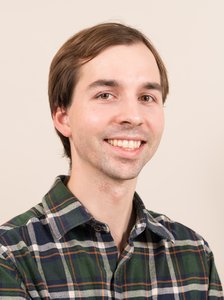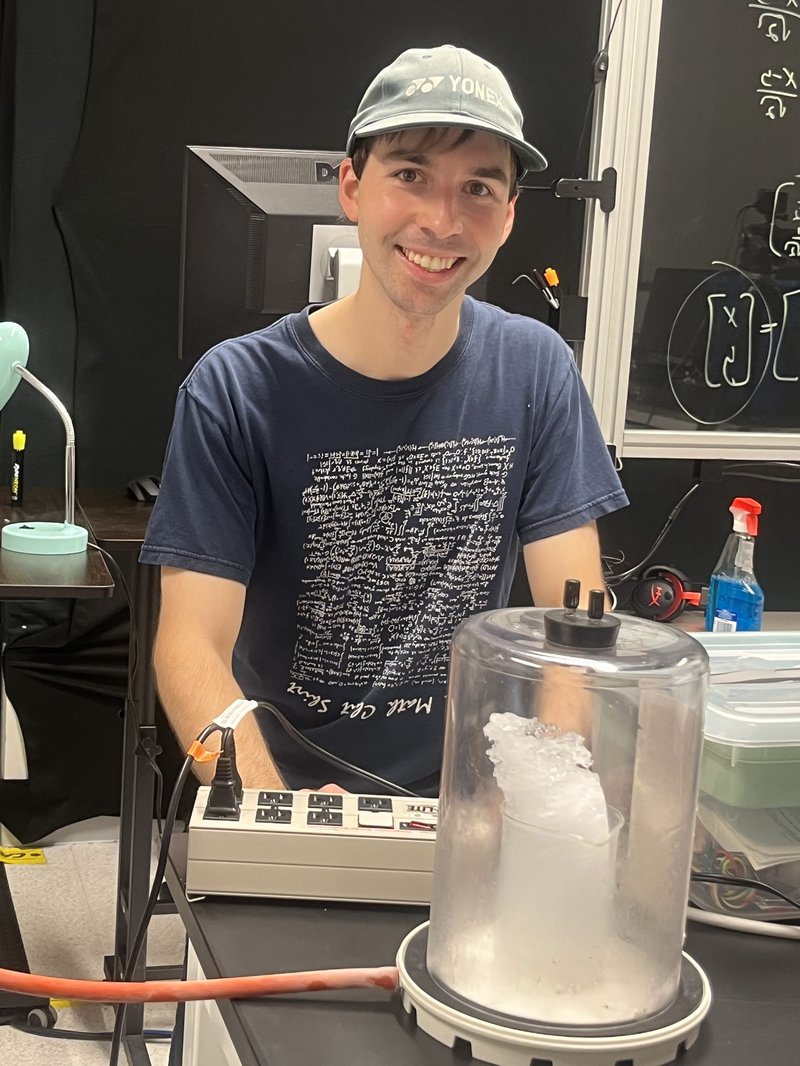
Can you provide a brief introduction to yourself, including your academic background and area of research?
I grew up Lethbridge, AB. During school, I enjoyed mathematics and science, so physics seemed to be a natural fit. At the University of Lethbridge (where I did my BSc), I took as many physics and math courses as I could. After my undergrad, I stayed at the U of L for my MSc and studied phase space quantum mechanics. I attended the University of Waterloo during my PhD and focused on how quantum information techniques could be used to study black holes.
When I began my undergraduate studies, I envisioned a future focused solely on research and had little interest in teaching. However, when I taught my first lab during my master’s program, I was surprised to discover my passion for it. This experience inspired me to seek out as many teaching opportunities as possible during my master’s and PhD. After completing my doctorate, I continued at the University of Waterloo as a sessional lecturer until joining the University of Toronto.
Could you share some details about your current interests and any specific projects you are working on?
I am passionate about physics outreach because society perceives physics as difficult and intimidating. By presenting concepts in an engaging and intuitive way, I hope to inspire students to explore physics in their high school courses and beyond. As 2025 is the International Year of Quantum, I am collaborating with colleagues at the University of Waterloo on a grant to develop new teaching materials introducing middle and high school students to quantum mechanics and quantum information.

What is your approach to teaching, and are there specific teaching methods or philosophies you are particularly passionate about?
In my classes, demonstrations and simulations take center stage. During my undergrad, I often struggled with how to visualize different concepts. I have found that if someone can visualize the different physical processes, this is the first step towards developing a solid conceptual understanding.
Are there any interdisciplinary or collaborative initiatives you are interested in pursuing within the department?
I am excited to collaborate with Physics Learning Services staff members and the Teaching Stream faculty on new demonstrations and innovative methods to illustrate complex physical concepts. I have also recently become the faculty advisor for a student group who are building their own demonstrations for use in outreach visits to high school classrooms.
Is there a specific accomplishment you are particularly proud of?
I would have to say making solid nitrogen. When I was teaching a thermal physics course at the University of Waterloo, I was looking for other visualizations of phase transitions beyond the familiar solid/liquid/vapour transitions of water. I came across a video showing that if liquid nitrogen was placed in a vacuum chamber and the pressure was reduced, it would transition into a solid. Having never seen solid nitrogen before, I was overjoyed when it worked!
In what ways do you hope to make an impact within the department and the broader academic community?
I am excited to continue teaching undergraduate courses, participating in outreach, and contributing my expertise with demonstrations and other active learning approaches. In addition, I have also been getting more interested in physics education research, especially regarding evaluating the effectiveness of different teaching strategies. As I refine and continually develop my courses, I hope to enhance student understanding and foster a deeper appreciation for physics by integrating evidence-based practices and innovative pedagogies.
What advice would you offer to students who are interested in pursuing a career in teaching?
Try to get as much teaching experience as you can, whether it’s a in a tutorial, undergraduate lab, lecture, or outreach event. This will help you find your preferred teaching style and get a feel for what teaching strategies work well for you. And as you engage with students at different levels, you may find that an approach that didn’t resonate with one group is extremely effective for another.
Are there any lessons from your own academic journey that you would like to share?
Don’t be afraid to ask questions and go to office hours. Talk to your professor as soon as you can. Physics concepts build on each other, so it’s very easy to fall behind and feel lost. In some of my courses, I learned this lesson the hard way.
What drew you to join our department, and what aspects do you find most appealing or unique?
I was drawn to the department because it has an extremely strong emphasis on teaching and outreach. There are also numerous opportunities and resources available for me to try out different teaching strategies. I get to spend my day teaching what I’m passionate about as well as thinking about how I can improve my lectures by incorporating new technologies, visualizations, and teaching techniques.
Thinking ahead to the summer, I am excited to participate in Science Rendezvous as it is a significant outreach event attracting thousands of people to the University. It is an opportunity to share the same wonder and amazement I feel when I see physics demonstrations for the first time.
Beyond your academic pursuits, do you have any hobbies or interests that you'd like to share with the department?
I enjoy trying out new board and card games, so I’m excited to check out Toronto’s board game cafes. Currently, my favourite is Dominion since there are so many expansions that no two rounds are the same. I also look forward to getting back into climbing and playing badminton.

